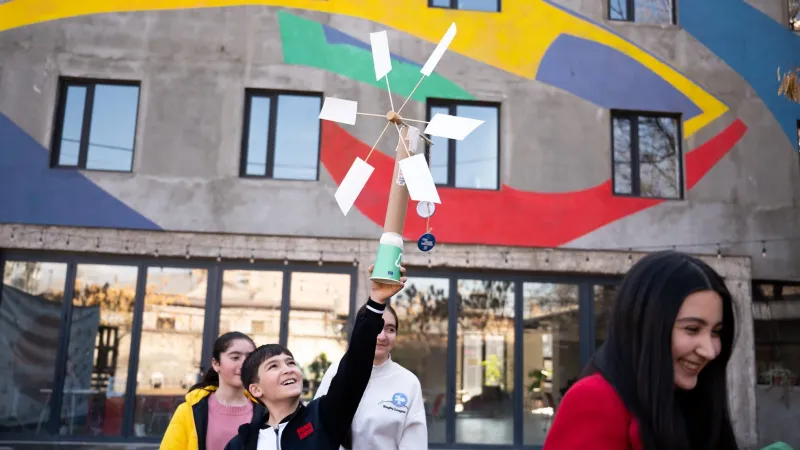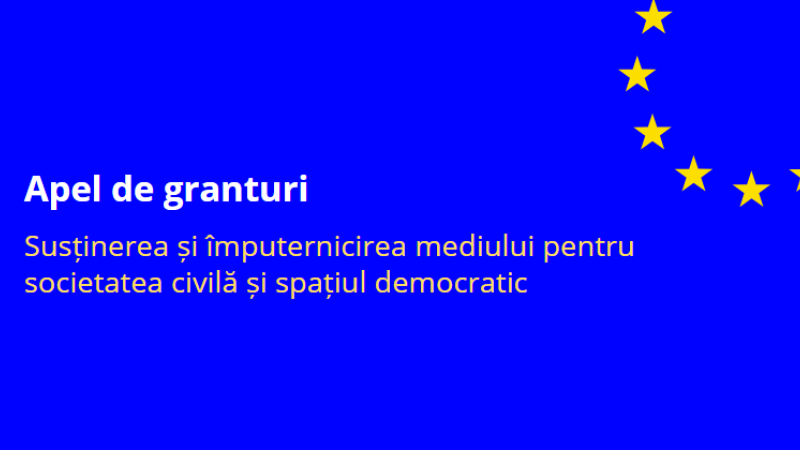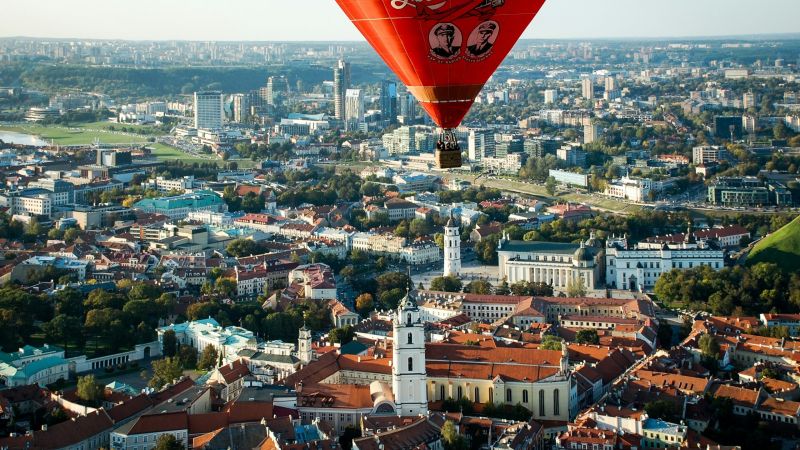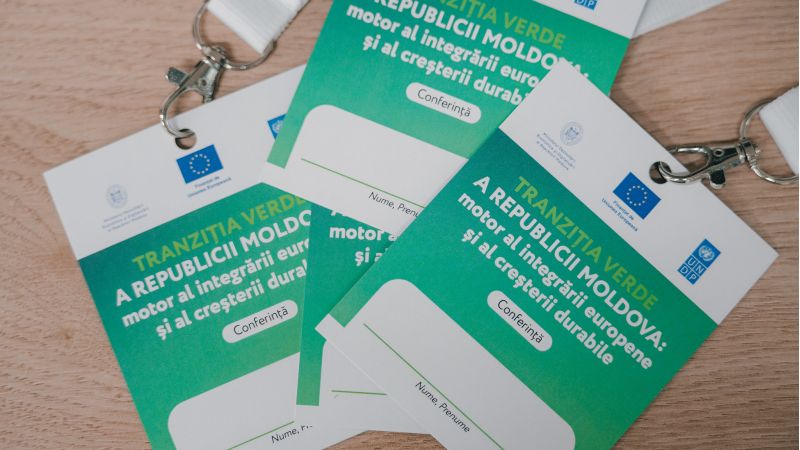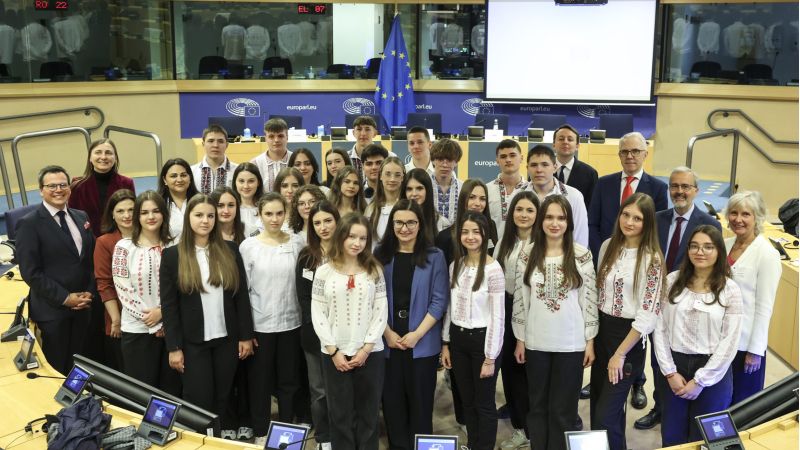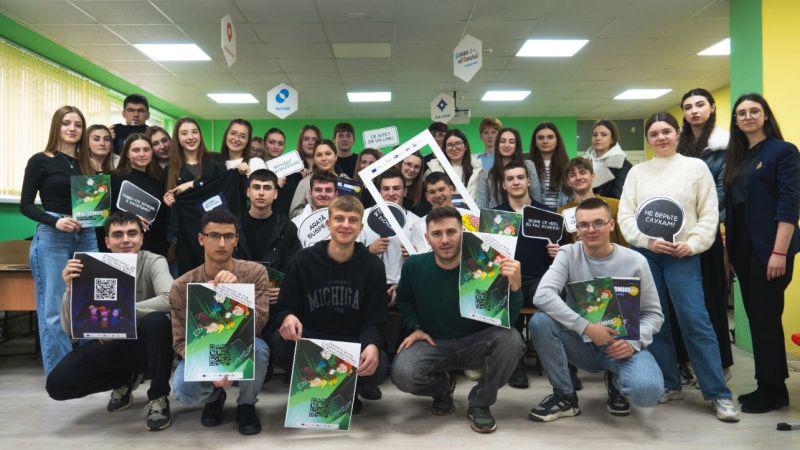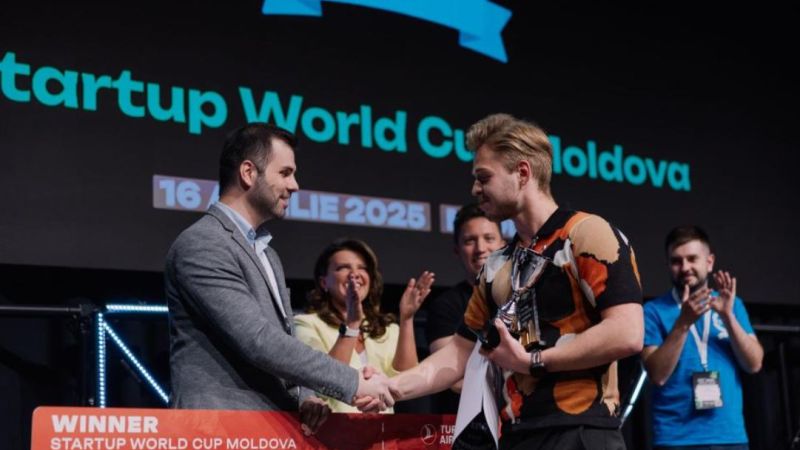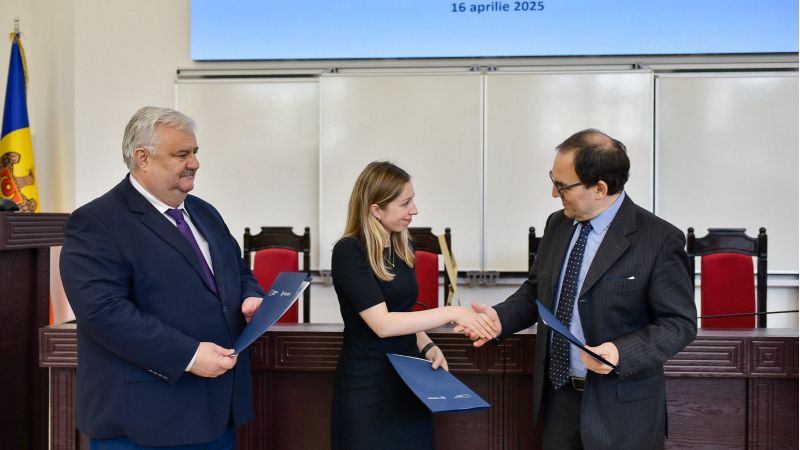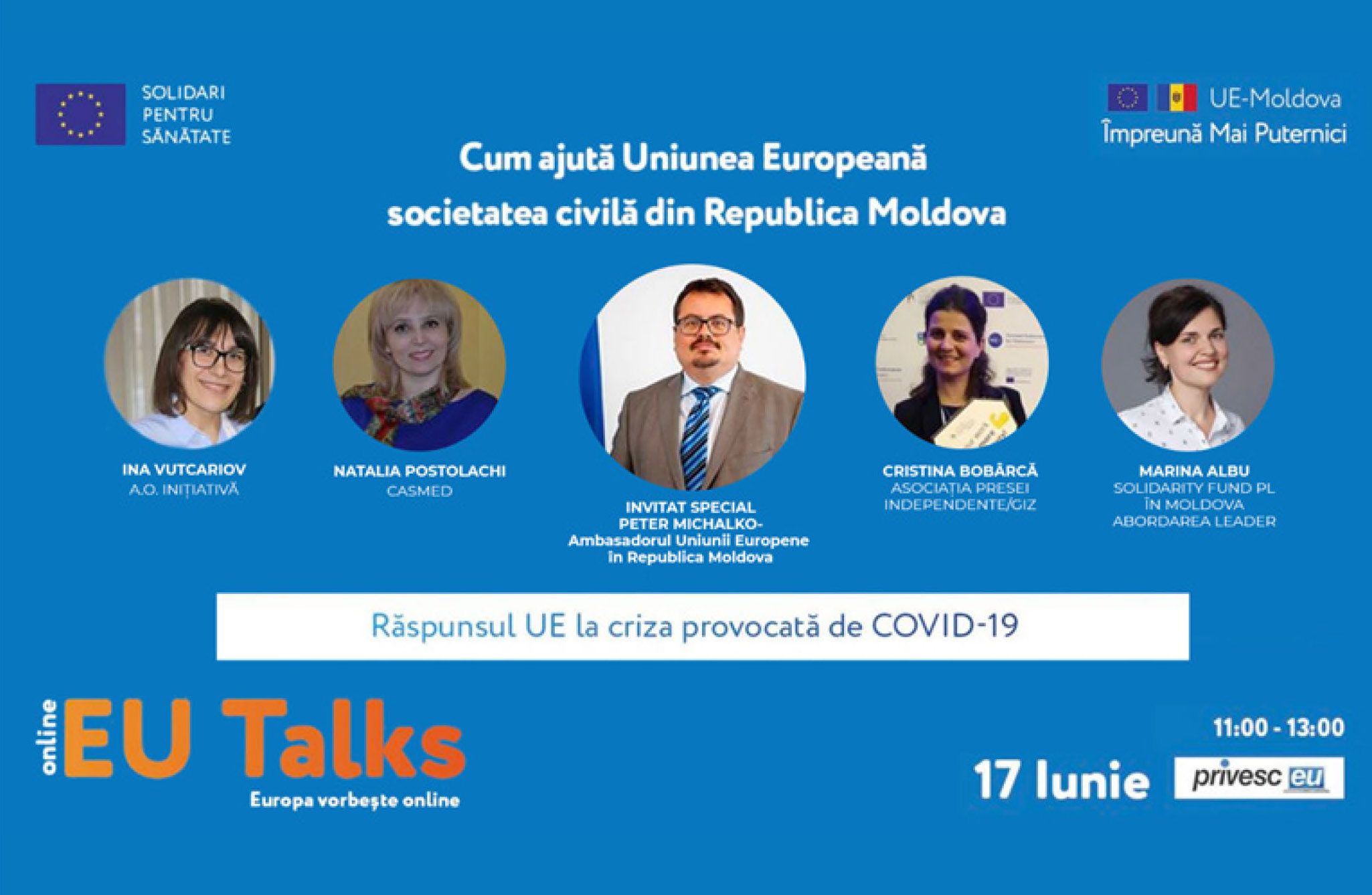
EU Talks: Cum ajută UE societatea civilă din Republica Moldova?
Răspunsul Uniunii Europene la criza COVID-19 în țările Parteneriatului Estic este unul amplu – de la echipamente medicale de protecție pentru angajații din sistemul de sănătate la pachete de sprijin pentru mediul de afaceri, de la asistență macrofinanciară la suport pentru păturile cele mai afectate de pandemie. Despre acest din urmă aspect a fost discuția publică cu tema „Răspunsul UE la criza COVID-19 – cum ajută UE societatea civilă din Republica Moldova”, organizată la 17 iunie a.c. de echipa Proiectului UE „Comunicare strategică și suport pentru mass-media în Republica Moldova”.
Conceput ca parte din seria de dezbateri „EU Talks/ Vorbește cu Europa/ Говорим с Европой”, evenimentul a reunit online reprezentanți ai mai multor ONG-uri ce oferă servicii sociale persoanelor vulnerabile, care sunt cele mai afectate de pandemie și consecințele ei economice. La discuție s-a alăturat și ES Peter Michalko, Ambasadorul UE în Republica Moldova. Împreună, prin prisma propriilor experiențe, dar și a istoriilor celor ce au beneficiat de sprijinul UE si al Statelor Membre în această perioadă, publicul a aflat cum ONG-urile ajută oamenii să depășească mai ușor greutățile din timpul pandemiei COVID-19.
Prima poveste a venit de la Centrul de Asistență la Domiciliu „Casmed” din Bălți. Natalia Postolachi, directoarea centrului, a vorbit despre faptul că, datorită asistenței UE de care a beneficiat, „Casmed” a reușit să acorde în continuare servicii sociale persoanelor cu dizabilități din Nordul republicii. Schimbări mai radicale a suferit serviciul social „Echipa mobilă” care, de facto, a devenit unul online.
Nu și-a întrerupt activitatea nici Asociația „Inițiativa Pozitivă”, care a creat la Anenii Noi o comunitate terapeutică în sprijinul persoanelor cu HIV-SIDA. Datorită grantului UE e care beneficiat prin intermediul Fundației Est-Europene, asociația a putut asigura continuitatea serviciilor specializate și în timpul pandemiei.
În continuare, Cristina Bobârcă a povestit cum, împreună cu partenerii din regiuni, identifică și realizează posibilele acțiuni de reducere a impactului negativ al pandemiei la nivel local. Se întâmplă în cadrul proiectului UE „Abilitarea cetățenilor în Republica Moldova”, implementat de GIZ și API, iar motivarea spiritului cetățenesc și a implicării oamenilor în rezolvarea problemelor locale este direcționată în domenii precum apa și canalizarea, managementul deșeurilor solide, eficiența energetică și protecția mediului. Iar Marina Albu, președinta Rețelei Naționale LEADER, abordare ce este implementată de Solidarity Fund PL Moldova, a vorbit despre sprijinul oferit de UE și Polish Aid pentru dezvoltarea rurală a țării – mici intervenții în infrastructură, finanțarea antreprenorilor și promovarea valorilor locale.
Ambasadorul UE a accentuat rolul pe care sectorul asociativ îl are în aceste timpuri grele pentru ca oamenii să treacă mai ușor peste criză și a menționat că UE rămâne alături de această parte vitală a societății.
În context, diplomatul a amintit despre faptul că răspunsul UE la pandemia de coronavirus pentru țările Parteneriatului Estic, lansat la sfârșit de martie, conține expres un pachet de sprijin pentru organizațiile societății civile și a subliniat că, în acest an, vor fi lansate și ale programe destinate sectorului.
Evenimentul „EU Talks/ Vorbește cu Europa/ Говорим с Европой” s-a bucurat de o audiență largă, fiind urmărit, pe diverse platforme media, de peste 44 de mii de oameni din toată țara. Totodată, peste 50 de persoane din teritoriu – în mare parte activiști civici, jurnaliști și reprezentanți ai ONG-urilor locale și naționale – au adresat întrebări și au primit, în direct, răspuns în legătură cu problemele care îi preocupă cel mai mult astăzi, dar și informații utile despre fondurile UE care poti fi accesate de ei în cel mai apropiat timp.
Seria de evenimente EU Talks va fi reluată în toamnă cu noi subiecte de actualitate ce țin de asistența UE pentru Republica Moldova și cetățenii săi.
